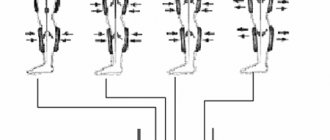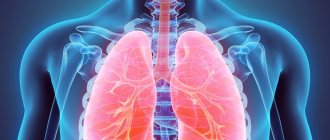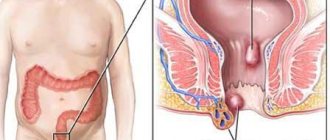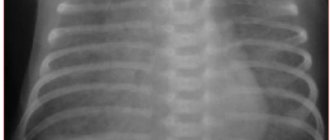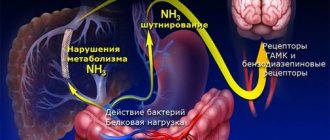As you already understand, hypothyroidism is a disease of the thyroid gland, a condition of the body that occurs due to a lack of hormones. Thyroid hormones are divided into two classes:
- Iodothyronines are responsible for the energy state of the body in different states: rest, wakefulness, etc.
- Calcitonin is a hormone responsible for the growth and formation of the bone apparatus, as well as the general state of calcium metabolism.
One of the thyroid hormones, triiodothyronine, affects all systems of the body from the uterine period until death, so the thyroid gland and its health cannot be underestimated.
Symptoms of hypothyroidism
Thyroid hormones affect the metabolic process. If there are too few of them in the body, then all processes slow down, including metabolism, and you feel lethargic and lack of energy.
The most common symptoms are:
- Muscle weakness, lethargy, feeling of an “empty battery”
- Decreased body temperature, feeling of coldness in the extremities, chilliness
- Swelling of the face and limbs
- Hair loss, brittle nails, dry skin
- Decreased libido, erectile dysfunction
- Rapid weight gain even with a standard diet
- Loss of concentration, depression, lethargy
- Constipation, nausea, vomiting
- Deepening of the voice and the appearance of a goiter in the neck in the later stages
The presence of these symptoms should make you think and urgently consult a doctor.
Why is hypothyroidism dangerous?
Hypothyroidism is diagnosed not so rarely: according to statistics, approximately 20 cases per 1000 people. It can manifest itself at any age, but we ourselves are in no hurry to consult doctors, blaming work or personal problems for everything. Very often, instead of an endocrinologist, a person prefers to see a psychologist, suspecting depression. But treatment in this case does not bring results.
The main danger of hypothyroidism is too slow development. Very often, doctors are in no hurry to send the patient for a blood test for hormones, trying to find the cause in other diseases.
This is especially true for children: drowsiness and other problems are attributed to overwork from studying or sports.
There are two diseases that can develop in children and adults if left untreated:
1. Cretinism
- a severe endocrine disease that manifests itself in children as a serious delay in mental and physical development. In the early stages it is treated by taking hormonal drugs. In Russia, it is detected in infants through screening in the first days of a newborn’s life.
2. Myxedema
- a disease in which the basic energy metabolism is disrupted and the oncotic pressure of tissue fluid increases. As a result, tissues and organs swell. This is most evident on the face - swollen eyes, brow ridges and cheeks, dry skin.
Lack of treatment or its insufficiency can lead to myxedematous coma, the mortality rate of which, according to various estimates, reaches from 40 to 60%. This outcome is more common in older women. Risk factors also include infectious diseases, cardiovascular diseases, taking sleeping pills and antidepressants, drinking alcohol and smoking, and excessive physical activity.
Read also
Pheochromocytoma
Pheochromocytoma is a tumor of the adrenal medulla that produces catecholamines (adrenaline, norepinephrine, dopamine).
Pheochromocytoma consists of chromaffin cells. Pheochromocytoma may have... Read more
Acromegaly
Somatotropic hormone is a hormone produced in the pituitary gland. The main function of somatotropic hormone is to stimulate the growth of various body tissues. The biological effects of the hormone are...
More details
Hyperparathyroidism
Physiology of the parathyroid glands The parathyroid glands produce parathyroid hormone, the main hormone that regulates the metabolism of calcium and vitamin D (under the influence of parathyroid hormone, vitamin D becomes active)…
More details
Osteoporosis
Osteoporosis is a progressive metabolic disease of the skeletal bones, which results in a decrease in bone density and disruption of its internal structure. The result of osteoporosis is...
More details
Hyperprolactinemia
Hyperprolactinemia is a persistent increase in the level of the hormone prolactin in the blood. Hyperprolactinemia syndrome is a complex of symptoms that occur against the background of increased prolactin levels, the most characteristic...
More details
Diagnosis and treatment of hypothyroidism
- Contact your endocrinologist for advice.
- Do an ultrasound of the thyroid gland.
- Take the prescribed tests - the very first and most important - TSH. In hypothyroidism it is elevated. At the same time, the level of thyroxine and triiodothyronine falls below normal.
- Get treatment and follow your doctor's strict orders.
Treatment is hormonal therapy. First of all, replacement therapy with bovine thyroid preparations or synthetic thyroid hormones is prescribed. Under no circumstances should you resort to homeopathy, dietary supplements, vitamins or physiotherapy - none of these methods help in the treatment of hypothyroidism. You can start a disease!
We remind you: taking any medications yourself without a doctor’s prescription is dangerous to your health. Only a specialist can prescribe a hormonal drug in the required dosage to correct hormone deficiency.
Neuropsychiatric disorders in diseases of the endocrine system
The nervous, immune and endocrine systems are closely interconnected and they all ensure the preservation of homeostasis, therefore mental disorders are always accompanied by changes in these body systems, and the correction of these changes leads to the recovery of the patient with symptoms of neuropsychiatric disorders. From my point of view, the treatment of mental disorders should not necessarily consist in the prescription of psychotropic drugs, but, first of all, in the correction of disorders of the nervous, immune and endocrine systems of the body, with the drugs that doctors of these specialties treat their patients. I believe that knowledge of endocrinology, neurology and immunology is mandatory for psychiatrists, not only the symptoms of diseases of these systems, reading the results of laboratory and instrumental research methods, but also medicinal and non-medicinal methods of treating the pathology that endocrinologists, immunologists and neurologists encounter. The Russian Neuropsychiatric Association, which we are creating, sets one of its goals to bring together interdisciplinary research, based on modern achievements in biology and psychology.
However, let's return to the topic of this note. It is known that endocrine disorders can lead to various neurological disorders, such as headache, myopathy, chronic and acute dyscirculatory encephalopathy, including even coma. It is important to promptly recognize neurological and psychopathological symptoms caused by endocrine disorders when treating the latter, and vice versa, disorders of the endocrine system when diagnosing and treating neuropsychiatric disorders. Early diagnosis and treatment of hormonal imbalances can quickly reduce the severity of neurological and psychopathological symptoms.
Hypothalamic-pituitary system
The neuroendocrine system, consisting of the nervous system and the endocrine system, is known to be a good example of how these body systems work together. In addition, this is the key to understanding the mechanisms of their interaction and the first hint for the attending physician. The emphasis in the work of endocrinologists is often placed on the role of the pituitary gland in regulating the activity of various endocrine glands. However, attention should be paid to the peculiarities of the hypothalamus's control over the secretion of pituitary hormones. It must be remembered that there are multiple reciprocal interactions between the nervous system and the endocrine system to maintain homeostasis and proper response to environmental stimuli through the regulated secretion of hormones, neurotransmitters or neuromodulators. Neurons release their neurotransmitters and neuromodulators at synapses, while neurosecretory cells release substances directly into the bloodstream that act as hormones. Neurosecretory cells include neurohypophyseal and hypophysiotropic cells.
Hypothalamus
Thus, it should be recognized that the hypothalamus is the main brain structure involved in maintaining homeostasis. The hypothalamus has many specific nuclei that receive sensory inputs from the external and internal environment, such as light, nociception, temperature, blood pressure, osmolality and blood glucose. Many hormones also exhibit both negative and positive feedback by directly influencing the hypothalamus. The hypothalamus can be said to provide coordinated responses that influence the pituitary gland, cerebral cortex, brainstem, spinal cord, and sympathetic and parasympathetic preganglionic neurons to maintain homeostasis through coordinated endocrine, behavioral, and autonomic responses.
Neurological symptoms of endocrine diseases
Various neurological signs and symptoms resulting from endocrine disorders include headache, altered state of consciousness, abnormal muscle strength, muscle tone, muscle rigidity and cramps, movement disorders and psychomotor retardation.
Headache
Headache may be a nonspecific symptom, but it can relatively often be caused by pathological conditions, including intracranial hypertension and, in particular, its idiopathic form. Idiopathic intracranial hypertension (pseudotumor cerebri syndrome, PTCS) is the presence of increased intracranial pressure in the presence of normal brain parenchyma and cerebrospinal fluid. Headache, vomiting, visual changes, nerve palsy, and papilloedema are commonly present in the clinical picture of idiopathic intracranial hypertension. In young children, only irritability, drowsiness or apathy may be detected. If left untreated, this disease can progress to optic atrophy and vision will be quickly lost. The exact mechanism of idiopathic intracranial hypertension is unknown and unclear, but it can occur in association with a variety of conditions, including endocrine disorders such as adrenal insufficiency, diabetic ketoacidosis, hyperadrenalism, hyperthyroidism, and hypoparathyroidism. In children, idiopathic intracranial hypertension is a neuroendocrine disorder illustrating multiple metabolic and hormonal abnormalities within the hypothalamic-pituitary-adrenal axis and involving aspects of the endocrine system such as renin-angiotensin-aldosterone, growth hormone (GH), and insulin-like growth factor-1 (IGF-1), hypothalamic-pituitary-thyroid axis, hypothalamic-pituitary-gonadal axis, posterior pituitary gland and antidiuretic hormone.
Psychopathological symptoms in endocrine diseases
Altered mental status is a common finding in the emergency department and can be caused by endocrine diseases with rapid decompensation of the endocrine system. Attention and level of consciousness can be maintained by the interaction between the reticular nucleus of the brainstem, the thalamus and the cerebral cortex. Impaired consciousness refers to a significant change in wakefulness and awareness of oneself and the environment. The causes of coma in children may be associated with infectious or inflammatory factors, structural brain lesions, metabolic and toxic processes, as well as severe nutritional disorders. Metabolic or endocrine encephalopathy should be considered in the differential diagnosis in those patients who do not have focal neurological signs and symptoms of meningeal cell irritation.
Diabetic coma
Diabetic coma is one of the significant diagnoses that should be excluded in the emergency department when managing patients with mental changes, in particular, confusion. Diabetic ketoacidosis and hyperglycemic hyperosmolar syndrome are the most dangerous conditions in hyperglycemia. On the contrary, hypoglycemia and cerebral edema after treatment of diabetic ketoacidosis can also be represented by an altered psyche, ranging from general weakness, lethargy, irritability to coma.
Adrenal hypoplasia
Hyponatremic hypovolemic adrenal crisis in patients with congenital adrenal hyperplasia (CAH), familial glucocorticoid deficiency, or adrenocorticotropic hormone (ACTH) deficiency can lead to mental changes in the patient.
Hypoparathyroidism
Hypocalcemic tetany or seizures, with or without hypoparathyroidism, may also lead to impaired consciousness. It should be remembered that apathy, delirium, or psychosis may occur at serum calcium concentrations exceeding 11 mg/dL. Checking blood glucose, calcium, and electrolyte levels should be performed as a first step in the evaluation of altered mental status in a patient with neuropsychiatric disorders.
Thyroid diseases
Severe hyperthyroidism and hypothyroidism may be rare causes of mental changes, thyroid changes, and hypothyroidism coma, respectively. Patients with this pathology may experience behavioral and cognitive changes, myoclonus, seizures, psychosis, involuntary movements and even coma. In hypothyroid coma, the patient may have a history of previous thyroid disease and progressive lethargy with hypothermia, bradycardia, constipation, shortness of breath, yellow and dry skin, and infrequent seizures. An overactive thyroid gland may cause fever, tachyarrhythmia, tachypnea, shortness of breath, congestive heart failure, diarrhea, nausea, vomiting and hyperhidrosis. In addition, tremors, restlessness, confusion, delirium, and mental changes to a comatose state may develop. Major surgery, trauma, systemic infections, severe emotional stress, or diabetic ketoacidosis may be considered precipitating factors, and thyroid function should be assessed during the treatment of diabetic ketoacidosis. Hashimoto's encephalopathy can develop in patients with autoimmune thyroid diseases and is characterized by steroid-sensitive encephalopathy with the presence of antithyroid antibodies.
Changes in the muscular system
Muscle weakness, pain and muscle stiffness are common symptoms of endocrine disorders. Systemic characteristic symptoms of specific endocrine disorders usually precede the onset of weakness, but muscle weakness may be the initial symptom of an endocrine disorder. Endocrine myopathy should be considered as one of the etiologies of muscle weakness, because specific treatment here is quite available for effective results.
Thyroid dysfunction (hyper- or hypothyroidism), parathyroid disorders (hyper- or hypoparathyroidism), and adrenal disease (Cushing's disease, Addison's disease, or hyperaldosteronism) can cause endocrine myopathies. The clinical features of most endocrine myopathies in childhood are usually characterized by the presence of proximal muscle lesions, such as the pelvic or shoulder girdle muscles, relatively mild morphological muscle abnormalities even in the presence of severe clinical symptoms, and a favorable treatment outcome. Weakness is usually much more severe in the legs than in the arms, and abnormal gait may be the initial symptom of proximal or distal leg weakness. A case of subclinical hypothyroidism with gait abnormality was reported in an elderly man.
Electrolyte imbalances, such as hyper- or hyponatremia, hyper- or hypokalemia, hypophosphatemia, hypocalcemia and hypomagnesemia, can cause myopathies accompanied by endocrine disorders. Deep tendon reflexes may be normal or diminished, but are usually absent. Serum creatine kinase is usually normal. However, it may be increased, which does not correlate with the severity of muscle weakness.
Cramps, involuntary painful contractions of a muscle or part of a muscle, may occur in normal children associated with intense exercise, but they can be caused by endocrine disorders, including adrenal insufficiency, hypothyroidism, or hyperthyroidism. Muscle stiffness and cramps occur in myotonia, dystonia, and other movement disorders, but may be present in hypothyroidism or thyrotoxicosis when motor unit activity requires continuity.

